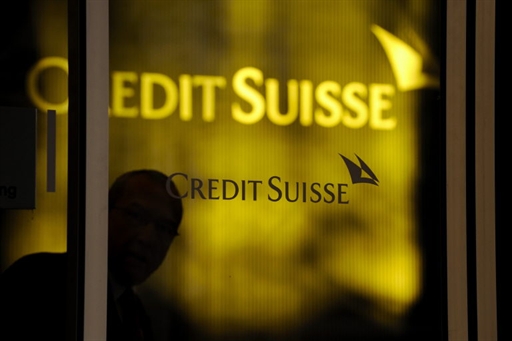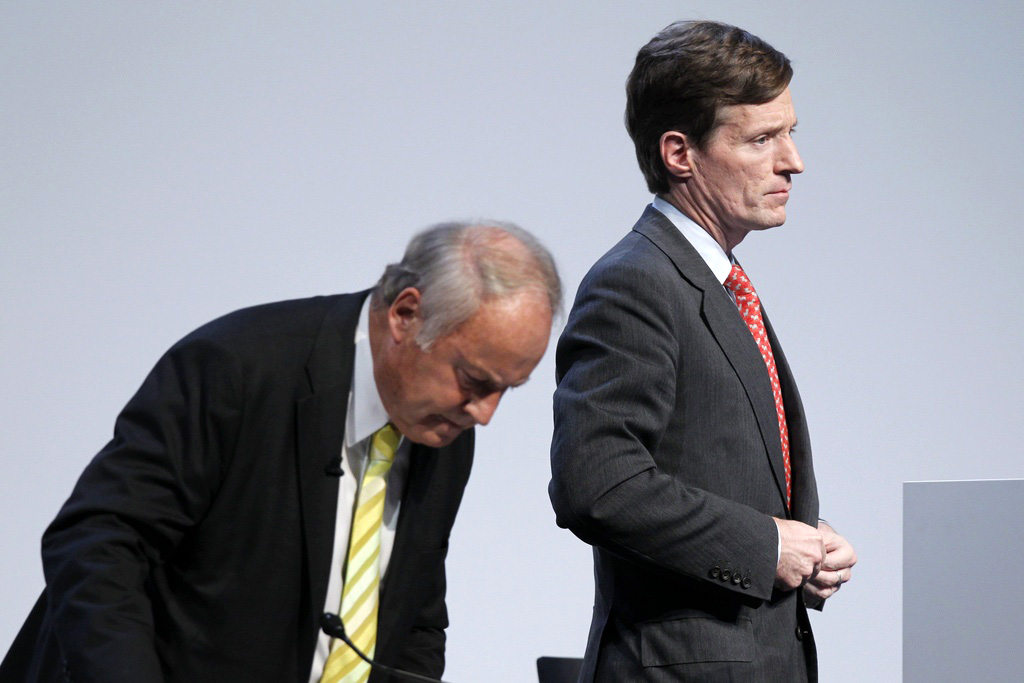Credit Suisse rides bumps with solid results

Credit Suisse has reported a net profit of SFr1.6 billion ($1.53 billion) for the second quarter, beating analysts’ forecasts despite uncertain market conditions.
The bank, which is based in Zurich, continued to attract money from wealthy clients, albeit it at a slower pace than in the first quarter. Profits were marginally better than the same period last year, but down 22 per cent on the first three months of 2010.
Financial analysts, polled by Reuters, had expected the bank to turn in a profit of SFr1.229 billion. Some had revised their figures downwards after sharp declines in profit at major United States banks.
The performance of the global financial sector was dampened by a difficult three months that saw increased regulatory pressures and high volatility caused by concerns that some countries, notably Greece, would default on government debts.
Credit Suisse, which saw core net revenues of SFr8.4 billion in the second quarter, reported a return on equity of 17.8 per cent.
“This was a resilient performance during a difficult second quarter for the banking sector”, commented the bank’s chief executive, Brady Dougan.
The group also said it had booked a charge of SFr447 million related to a one-off British tax on staff bonuses paid on 2009 profits and had set aside a contingency fund of SFr216 million to cover potential legal action.
“Credit Suisse results were mixed, with a good bottom line which was, however, impacted by some one-off items,” noted Vontobel bank analyst Teresa Nielsen.
German tax probe
Despite a net new asset gain of SFr14.5 billion from wealthy individuals and institutional clients between the beginning of April and the end of June (SFr40.5 billion for the first half of the year), the bank revealed that German customers are withdrawing offshore money parked in Switzerland.
This follows increasing speculation about cross-border wealth management practices with a revised double taxation agreement between Switzerland and Germany pending ratification.
On top of that, the German tax authorities raided 13 Credit Suisse branches in Düsseldorf, Berlin, Munich and other cities eight days ago.
One of the aims of the raids was to find evidence of Credit Suisse staff aiding and abetting German tax evaders.
However Brady Dougan told journalists that the bank was not engaged in talks to settle any case and that it had nothing to fear from the ongoing investigation.
“We have conducted our business compliant with all the rules and regulations and it is our belief that this will be proven out,” he said.
Regulatory pressures
Credit Suisse maintained that it is well positioned to absorb impending regulatory changes without impacting on its business results.
Dougan said that the Swiss Financial Market Supervisory Authority (Finma) had imposed tougher conditions on banks than any other regulatory body. And he joined calls from the Swiss financial sector for Finma not to raise the bar too high for local banks.
“Switzerland is setting the pace for increased regulatory standards, but we continue to believe that Switzerland needs to remain in step with the global regulatory environment,” he said.
“This is very important to make sure the country remains competitive as a financial centre as well as economically competitive. If the measures get too far out of line, not only will this have an impact on the financial industry, but there would be repercussions for the real economy and job creation.”
Several banks are awaiting the results of a European Union “stress test” on Friday to determine how resilient they would be to future shocks. However, Credit Suisse believes that a stress test carried out by Finma was twice as rigorous as the EU model.
Several options for making banks more secure and cutting out dangerous risks have been suggested by various countries. Switzerland introduced its own stringent rules in 2008 as the financial crisis was making its impact felt.
Matthew Allen, swissinfo.ch and agencies
Switzerland came under sustained attack in 2009 for helping foreign tax evaders hide their assets.
The most damaging tax-evasion case involved the activities of UBS bank in the US. In February, UBS was fined $780 million after admitting helping US citizens to dodge taxes.
In September, the Swiss government was forced to hand over the details of 4,450 UBS clients to the US – in effect violating Swiss banking secrecy to prevent a ruinous court case for UBS.
The Swiss Federal Administrative Court ruled that the handover was illegal, but parliament has since approved the deal.
In December, an employee of the Geneva-based HSBC private bank passed confidential client data to the French authorities.
In February 2010, the German state of North-Rhine Westphalia bought a stolen CD of Swiss banking data for €2.5 million (SFr3.35 billion).
In June, the state of Lower Saxony bought more stolen bank data with financial assistance from the German government.
The CS group announced a full-year loss of SFr8.2 billion – its worst ever result – with a fourth-quarter net loss of SFr6 billion.
Switzerland’s second-largest bank after UBS blamed the result on a poor trading performance and restructuring charges.
Analysts had forecast a full-year net loss of around SFr6 billion and a loss of SFr4 billion for the fourth quarter.

In compliance with the JTI standards
More: SWI swissinfo.ch certified by the Journalism Trust Initiative





You can find an overview of ongoing debates with our journalists here. Please join us!
If you want to start a conversation about a topic raised in this article or want to report factual errors, email us at english@swissinfo.ch.